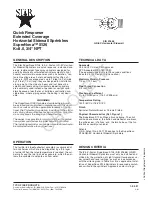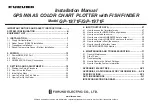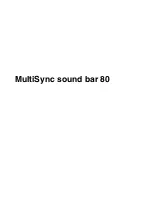
SERVICING NOTE
NOTES ON HANDING THE OPTICAL PICK-UP BLOCK
OR BASE UNIT
The laser diode in the optical pick-up block may suffer electrostatic
break-down because of the potential difference generated by the
charged electrostatic load, etc. on clothing and the human body.
During repair, pay attention to electrostatic break-down and also use
the procedure in the printed matter which is included in the repair
parts.
The flexible board is easily damaged and should be handled with
care.
NOTES ON LASER DIODE EMISSION CHECK
The laser beam on this model is concentrated so as to be focused on
the disc reflective surface by the objective lens in the optical pick-up
block. Therefore, when checking the laser diode emission, observe
from more than 30 cm away from the objective lens.
[FL Display Tube, LED All Lit and Key Check mode]
When the TUNER/BAND , DISPLAY/DEMO , and FILE 2 buttons
are pressed simultaneously, the FL display tube and LEDs will all
light up. Press any button to enter the key check mode.
When the key check mode is entered, the FL display tube displays
“K 1 J0 V0”. Each time a button is pressed, the counter increases in
the following order, K 2
n
K 3
n
K 4.
If buttons already pressed once are pressed again, the counter will
not increase. When the VOLUME knob is rotated in the + direction,
the count increases in the following order.
V1
n
V2
n
V3.
When rotated in the – direction, it decreases in the following order.
V0
n
V9
n
V8.
When the AMS dial is rotated in the clockwise direction, the count
increases in the following order.
J1
n
J2
n
J3.
When rotated in the counterclockwise direction, it decreases in the
following order.
J0
n
J9
n
J8.
To exit form the test mode, press the TUNER/BAND , DISPLAY/
DEMO , FILE 2 buttons simultaneously again.
[Switching the channel step 9 KHz/10 KHz]
Press ENTER/NEXT button and POWER button simultaneously
to switch the AM channel step 9 kHz and 10 kHz. Be sure not to
change with carelessness.
SAFETY CHECK-OUT
After correcting the original service problem, perform the following
safety checks before releasing the set to the customer:
Check the antenna terminals, metal trim, “metallized” knobs, screws,
and all other exposed metal parts for AC leakage. Check leakage as
described below.
LEAKAGE
The AC leakage from any exposed metal part to earth ground and
from all exposed metal parts to any exposed metal part having a return
to chassis, must not exceed 0.5 mA (500 microampers). Leakage
current can be measured by any one of three methods.
1.
A commercial leakage tester, such as the Simpson 229 or RCA
WT-540A. Follow the manufacturers’ instructions to use these
instruments.
2.
A battery-operated AC milliammeter. The Data Precision 245
digital multimeter is suitable for this job.
3.
Measuring the voltage drop across a resistor by means of a VOM
or battery-operated AC voltmeter. The “limit” indication is 0.75
V, so analog meters must have an accurate low-voltage scale.
The Simpson 250 and Sanwa SH-63Trd are examples of a passive
VOM that is suitable. Nearly all battery operated digital
multimeters that have a 2V AC range are suitable. (See Fig. A)
To Exposed Metal
Parts on Set
0.15
µ
F
1.5k
Ω
AC
voltmeter
(0.75V)
Fig. A. Using an AC voltmeter to check AC leakage.
www. xiaoyu163. com
QQ 376315150
9
9
2
8
9
4
2
9
8
TEL 13942296513
9
9
2
8
9
4
2
9
8
0
5
1
5
1
3
6
7
3
Q
Q
TEL 13942296513 QQ 376315150 892498299
TEL 13942296513 QQ 376315150 892498299





































